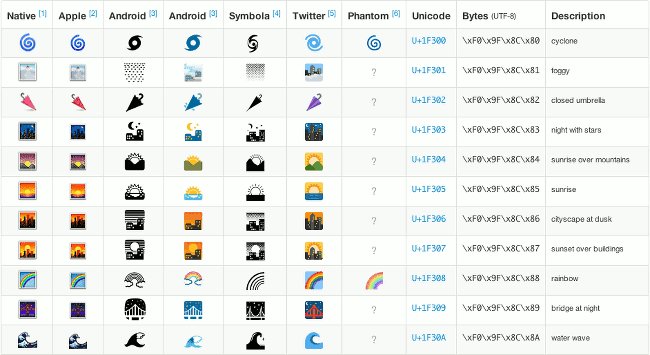Some emojis (e.g. ☁) have two unicode, u'\u2601' and u'\u2601\ufe0f'. What does u'\ufe0f' mean? Is it the same if I delete it?
I\'m writing a python program to judge emoji with a collected emoji unicode set. During the test, I found that one emoji,take ☁ as an example, has two unicode,
-
That's the Variant Form, which provides more information for those displays, that are capable of displaying with colour and other things.

This chart gives you the difference between
FE0FandFE0E:You could consider that the
FE0Eversion is the unicode text version, and theFE0Fversion is with graphics (those which are capable will display graphically), which gracefully degrades to text version, when graphical display is not available.讨论(0) -
In Unicode the value
U+FE0Fis called a variation selector. The variation selector in the case of emoji is to tell the system rendering the character how it should treat the value. That is, whether it should be treated as text, or as an image which could have additional properties, like color or animation.For emoji there are two different variation selectors that can be applied,
U+FE0EandU+FE0F.U+FE0Especifies that the emoji should be presented like text.U+FE0Fspecifies that it should be presented as an image, with color and possible animation.Without the variation selector the character still renders fine, (just look at the page source at this character: ☁) but there's no additional information about presentation.
讨论(0)
- 热议问题

 加载中...
加载中...